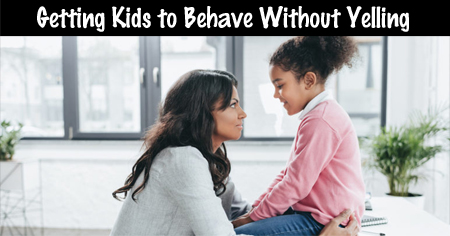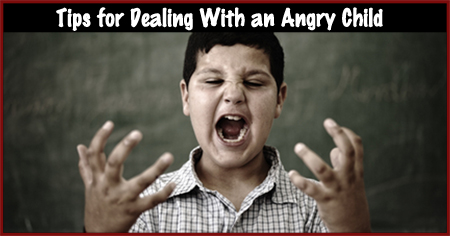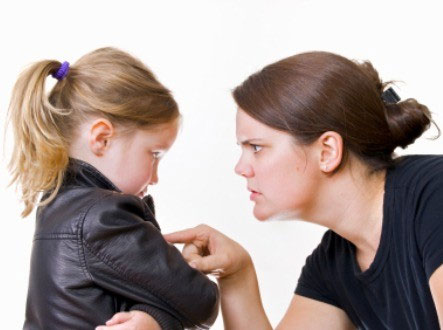Adopting right parenting techniques can definitely help to bring about a positive change in the behaviour of children. Have a quick look at the 10 tips that can help to improve your child’s behaviour.A child not behaving properly is an issue faced by most parents these days. No matter how strict parents are the children find ways to disobey their parents’ instructions and act according to their wishes. Effects of punishment seem to wear off very quickly and the children resort to their initial bad behaviour. Parents are often surprised by the audacity of their children and resort to physical or verbal violence to discipline their children. Child psychologists claim that they are certain specific methods by which parents can ensure that their children behave well. Some of those are listed below. In this articleSpend Quality TimeBehave YourselfSet RoutinesTeach Them to ContributePraise and Encourage Be Firm Use Positive Discipline Techniques Do Not Give-In Every Time Involve Your Child in Decision MakingEnsure that Child Gets Adequate Sleep1. Spend Quality TimeParents need to spend more time with their children in spite of their busy schedules. One of the ways to ensure that your child behaves properly is to sit with them, talk to them and make them understand the necessity of good behaviour.2. Behave YourselfOne way to teach your child good behaviour is to yourself behave properly. Children learn from their parents, so unless you exhibit in the house and outside the kind of behaviour you expect from your child, they will never learn.3. Set RoutinesIt is important that you set proper routines for your child to follow. You should chart out their bedtime, television time, the proper time to have dinner, etc. these ensure that your child does not adopt bad habits of doing whatever, whenever.4. Teach Them to ContributeChildren should be taught from an early age that everyone must contribute to the household work. Your child will learn the need to work together and do his own work rather than misbehave.5. Praise and EncourageYou must praise and encourage your child’s activities. If they do something good, appreciate their efforts. This way they are gratified and have no reason to misbehave.6. Be FirmPraise your child but be firm at the same time. Being firm does not mean that you physically or verbally abuse your child but you should let them know that they must follow certain rules. Imbibe this sense from their childhood that if they misbehave there will be consequences.7. Use Positive Discipline TechniquesPunishment is sometimes necessary but they need not be of a violent nature. These sorts of punishment do not work much either, they end up making your child more grudging and adamant and make them behave worse later. Instead you can discipline them in other ways like, sending them to their room or restricting them from watching television or maybe denying them dinner for a day.8. Do Not Give-In Every TimeKids are often very demanding and create a fuss when denied what they want. Parents often give-in to their wants in order to avoid consequences. Continuous fulfilment of demands tends to make children spoilt and they begin to display it in their behaviour. They begin to take everything for granted and do not appreciate the things that are being done for them. Learn to say no to your child if they get demanding.9. Involve Your Child in Decision MakingAsk your child to make important decisions instead of complaining about the ones you make. This will remove any causes for bad behaviour and also make them independent and feel important.10. Ensure that Child Gets Adequate SleepThis may seem inconsequential, but psychologists have said that one of the reasons children display bad, cranky behaviour is because they do not get enough sleep at night. Ensure that your child gets ample sleep.These tips may sound simple but it is necessary you practice them to improve your child’s behaviour. How they behave as kids affect how they will behave as adults, therefore it is important to monitor and improve their behaviour at a young age.Why do children misbehave? How to improve the behaviour of children? What are the ways to prevent misbehaviour in children? Discuss here.
Adopting right parenting techniques can definitely help to bring about a positive change in the behaviour of children. Have a quick look at the 10 tips that can help to improve your child’s behaviour.A child not behaving properly is an issue faced by most parents these days. No matter how strict parents are the children find ways to disobey their parents’ instructions and act according to their wishes. Effects of punishment seem to wear off very quickly and the children resort to their initial bad behaviour. Parents are often surprised by the audacity of their children and resort to physical or verbal violence to discipline their children. Child psychologists claim that they are certain specific methods by which parents can ensure that their children behave well. Some of those are listed below.
1. Spend Quality Time
Parents need to spend more time with their children in spite of their busy schedules. One of the ways to ensure that your child behaves properly is to sit with them, talk to them and make them understand the necessity of
good behaviour.
2. Behave Yourself
One way to teach your child good behaviour is to yourself behave properly. Children learn from their parents, so unless you exhibit in the house and outside the kind of behaviour you expect from your child, they will never learn.
3. Set Routines
It is important that you set proper routines for your child to follow. You should chart out their bedtime, television time, the proper time to have dinner, etc. these ensure that your child does not adopt bad habits of doing whatever, whenever.
4. Teach Them to Contribute
Children should be taught from an early age that everyone must contribute to the household work. Your child will learn the need to work together and do his own work rather than
misbehave.
5. Praise and Encourage
You must praise and encourage your child’s activities. If they do something good, appreciate their efforts. This way they are gratified and have no reason to misbehave.
6. Be Firm
Praise your child but be firm at the same time. Being firm does not mean that you physically or
verbally abuse your child but you should let them know that they must follow certain rules. Imbibe this sense from their childhood that if they misbehave there will be consequences.
7. Use Positive Discipline Techniques
Punishment is sometimes necessary but they need not be of a violent nature. These sorts of
punishment do not work much either, they end up making your child more grudging and adamant and make them behave worse later. Instead you can discipline them in other ways like, sending them to their room or restricting them from watching television or maybe denying them dinner for a day.
8. Do Not Give-In Every Time
Kids are often very demanding and create a fuss when denied what they want. Parents often give-in to their wants in order to avoid consequences. Continuous fulfilment of demands tends to make children spoilt and they begin to display it in their behaviour. They begin to take everything for granted and do not appreciate the things that are being done for them. Learn to say no to your child if they get demanding.
9. Involve Your Child in Decision Making
Ask your child to make important decisions instead of complaining about the ones you make. This will remove any causes for
bad behaviour and also make them independent and feel important.
10. Ensure that Child Gets Adequate Sleep
This may seem inconsequential, but psychologists have said that one of the reasons children display bad, cranky behaviour is because they do not get enough sleep at night. Ensure that your child gets ample sleep.
These tips may sound simple but it is necessary you practice them to improve your child’s behaviour. How they behave as kids affect how they will behave as adults, therefore it is important to monitor and improve their behaviour at a young age.
Why do children misbehave? How to improve the behaviour of children? What are the ways to prevent misbehaviour in children? Discuss here.





























